Workshop Faculty
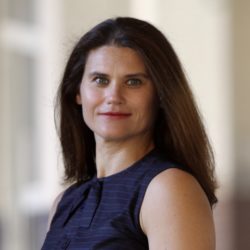
Nina Bandelj is Chancellor’s Professor in the Department of Sociology at the University of California, Irvine. She is an economic sociologist interested in how relational work, emotions, culture and power influence economic processes and has published widely, including in the American Sociological Review, American Journal of Sociology, Nature Human Behavior, Proceedings of the National Academy of Science, Social Forces and Socio-Economic Review. Her books include From Communists to Foreign Capitalists (2008); Economic Sociology of Work (2009); Economy and State (with Elizabeth Sowers, 2010); The Cultural Wealth of Nations (with Frederick F. Wherry, 2011); Socialism Vanquished, Socialism Challenged (with Dorothy Solinger, 2012); and Money Talks (with Frederick F. Wherry and Viviana A. Zelizer, 2017). Her newest book on The Emotional Economy of Parenting is forthcoming with Princeton University Press.
Bandelj is Past President of the Society for the Advancement of Socio-Economics and elected member of the honorary Sociological Research Association. She was Vice-President of the American Sociological Association, longtime and first woman editor of Socio-Economic Review and the inaugural associate vice provost for faculty development at UC Irvine.
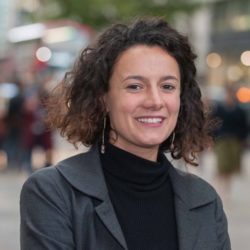
E: The Political Economy of Industrial Relations and Welfare States
Chiara Benassi is Associate Professor at the University of Bologna and Senior Visiting Fellow at King’s College London. Her research focuses on comparative employment relations, the political economy of labor markets and growth models. Her work has appeared in Socio-Economic Review, ILR Review, and Work, Employment & Society. Chiara has led and secured several major research grants, including funding from the Leverhulme Trust, the ESRC, and the Hans Boeckler Foundation. She holds a PhD from the London School of Economics and has held positions at Royal Holloway University, the Max Planck Institute for the Study of Societies, and King’s College London.
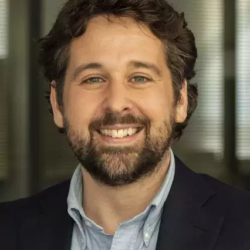
Timur Ergen is a senior researcher at the Max Planck Institute for the Study of Societies and an interim professor of sociology at the University of Oldenburg. Timur co-organizes the SASE Research Network Digital Economy and has been a member of SASE’s Executive Council since 2020. His research investigates competition, energy transitions, industrial and technology policy, and the postindustrial economy. His previous work has appeared in Competition and Change, Energy Research and Social Science, the Review of International Political Economy, and the Socio-economic Review.
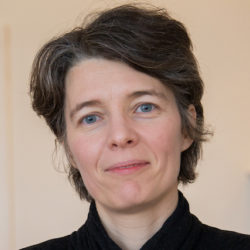
Virág Molnár holds a Ph.D. from Princeton University and is currently a Professor of Sociology at the University of Amsterdam. Before moving to Amsterdam, she was Associate Professor of Sociology at the New School for Social Research in New York. Her research explores the intersections of culture, politics, and social change in Eastern Europe, with special focus on urban culture, the built environment, and material culture. She has written about architecture and state formation in socialist and postsocialist Eastern Europe, the post-1989 reconstruction of Berlin, and the new housing landscape of postsocialist cities. Current projects include a comparative study of emerging markets for street art in New York, Berlin and Budapest; the politics of urban rodent control; and the cultural production of nationalist populism in contemporary Hungary. Her book Building the State: Architecture, Politics, and State Formation in Postwar Central Europe (Routledge, 2013) received the Mary Douglas Prize from the American Sociological Association. She has been a visiting fellow at the Minda de Gunzburg Center for European Studies at Harvard University, the Humboldt Universität in Berlin, the American Academy in Berlin, and the Institute for Advanced Study in Princeton. Her research has been supported by the National Science Foundation, Alexander von Humboldt Foundation, Marie Curie Intra-European Fellowship, and the American Council of Learned Societies, among others.

Roberto Pedersini is professor of Economic and Labour Sociology at the University of
Milan, where he is head of the Department of Social and Political Sciences. He graduated
with a degree in economics and obtained a PhD in Sociology and Methodology of Social
Research, with a dissertation on privatisation processes in central and eastern Europe
(Czech Republic, Hungary, and Poland).
His main fields of research are comparative industrial and employment relations as well as
the interaction between agency and social and political institutions in shaping economic
processes, with a specific focus on the role of collective action. He has participated in and
coordinated several research projects since the late 1990s and published many journal
articles, essays and monographs on these topics. He regularly participates in national and
international conferences to present papers on his current research.
He is chief editor of the Italian scientific journal Stato e mercato, an established reference
for socio-economic studies in Italy, and part of the Editorial boards of other journals,
including Transfer: European Review of Labour and Research.
As an expert in industrial and employment relations, he has participated in various
initiatives and projects of Italian and international organisations, including notably the
European Commission, the International Labour Office, the European Economic and
Social Committee, the European Foundation of the Improvement of Living and Working
Conditions, and the European Trade Union Institute.
He has been a member of SASE since 2012. He was the local organizer of the 2013 Milan
SASE Annual Meeting and served in the Executive Council between 2014 and 2016. He
contributed to the organization of the SASE Early Career Workshop (ECW) since its first
edition in 2016 in Berkeley, and chaired the ECW Committee between 2018 and 2023.

N: Finance and Society
Akos Rona-Tas is Professor of Sociology at the University of California, San Diego where he is also founding faculty of the Halicioğlu Data Science Institute. For many years, he was a senior research associate at INRA, Paris, and he was the President of SASE in 2018-2019.
He has written two books on market creation. Great Surprise of the Small Transformation: Demise of Communism and Rise of the Private Sector in Hungary, was published by Michigan University Press, the second one, co-authored with Alya Guseva, Plastic Money: Constructing Markets for Credit Cards in Eight Postcommunist Countries, by Stanford University Press.
He has published articles on the post-communist transition, on small entrepreneurs, consumer credit, and payment card markets in journals including the American Sociological Review, American Journal of Sociology, Theory and Society, Socio-Economic Review, Social Science Research, Research on Sociology of Organizations, Journal of Comparative Economics, Research in the Sociology of Work, as well as various chapters in edited volumes. He is currently working on the problem of rationality and uncertainty in two different contexts: credit assessment and the use of science in risk management.
Akos Rona-Tas has been a member of SASE since 2005. He is the co-founder and co-organizer of the Finance and Society Network, served on the Executive Council between 2012 and 2015, as Treasurer between 2015 and 2018, and as SASE President in 2018/19.
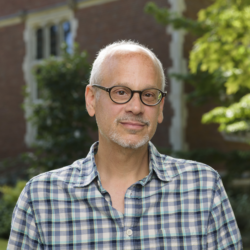
A: Communitarian Ideals and Civil Society
Marc Schneiberg, the John C. Pock Professor of Sociology at Reed College, is an economic and organizational sociologist who research focuses mainly on the rise, contemporary fates, and economic consequences of organizational diversity and alternatives to giant, shareholder corporations within American capitalism. He has studied the evolution of cooperative and other alternative enterprise systems in the US, including electrical and agricultural cooperatives, insurance mutuals, community banks, and credit unions. He has also addressed how such systems can help reshape markets, subject corporations to countervailing forces, and foster both resilience and shared prosperities in local economies. With National Science Foundation support, he is currently studying organizational variety within American banking and how it combined with state policy to channel flows of loans away from—and in to—small business in poor and minority communities during the pandemic. Schneiberg also has long standing interests in institutions and their relationships with social movements, and in economic governance, including association, regulation and self-regulation in American manufacturing and finance. He has been honored to serve in various capacities in the American Sociological Association, the NSF and the Society for the Advancement of Socio-Economics. His work can be accessed on his webpage.